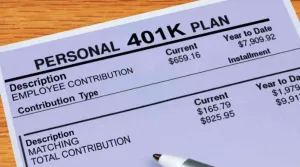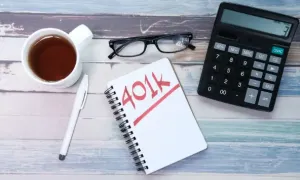Knowing what will happen to your 401(k) is crucial if you’re thinking about leaving your job or have just been fired. What occurs to your 401k when you leave your job? How should you handle it? If I resign, can I pay out my 401k? What happens if I don’t even have a 401k account? In this article, we’ll address these queries as well as others. It’s simple to close your 401(k) account if that’s all you want to do. All you have to do is ask your human resources department to stop making payroll 401k contributions. There is no consequence for doing this. You aren’t withdrawing money from the account after the paperwork is filed; you’re merely no longer making deposits with your weekly salary.
Hardship Distributions From 401k Plan
To withdraw money from your 401(k) account if you are under 59½ years old, you will need to verify that you are experiencing an authorised financial hardship. Only if the retirement plan offered by your work permits it. Although they are not compelled to do so, the first thing to do is to inquire with the human resources division about the likelihood of such a distribution.

If so, the employer may decide which of the following IRS-approved categories it will let to be eligible for a hardship distribution:
- Certain medical costs.
- Expenses related to buying a primary residence.
- Costs associated with education, including tuition.
- Payments required to avoid eviction from or foreclosure on a primary residence.
- Funeral costs.
- A few costs related to home repairs.
Disadvantages of Closing your 401k
Another matter is whether you ought to cash out your 401(k) before you reach 59½. The major drawback is the tax penalty for early withdrawals.
- You must first pay a 10% penalty on the amount you withdraw right away. When you file your taxes later, you must report the amount you withdrew as income. Even further down the road, your 401k account’s long-term earning potential suffers tremendous harm.
- Let’s imagine you have $50,000 in your 401(k) at age 40 and wish to withdraw $25,000 of it. First off, you only receive $22,500 because of the 10% early withdrawal penalty, which equates to $2,500.
- The $25,000 (note, the entire amount withdrawn) is then applied to your taxable income for that year. You would be subject to a 22% tax rate if you were single and earning $75,000. With an additional $25,000, your taxable income increases to $100,000, putting you in the 24% tax bracket. This implies that you are paying $6,000 more in taxes.
- So, your net early withdrawal amount is only $16,500. In other words, you paid $8,500 to withdraw $25,000 from the bank.
- In addition, you deducted $25,000 from your 401(k) account’s earning potential. Your bottom line would be affected at a cost of about $100,000 over a period of 25 years. That represents a greater drawback.
- Last but not least, it’s important to remember that your 401(k) retirement payments are tax deductible. The money is taken directly out of your pay at the time you receive your weekly payment. At the end of the year, your company doesn’t count those sums as taxable income.
Cashing Out your 401k While Still Employed
First of all, if you still work for the company that sponsors the 401k, you cannot withdraw money from your account while you are still an employee.
But you can’t just take the cash out; you have to take out a loan against it.
You are allowed to withdraw your account’s funds in the event of resignation or termination, but doing so carries risks that should make you think twice. You’ll pay a 10% early withdrawal penalty and standard income taxes on the money. Also, 20% of the cash you withdraw must be withheld by your self-employer for tax purposes.
Penalties are not always applied, however there are certain extremely specific exceptions to the norm that do not:
- You have a lasting impairment.
- Your age exceeds 55.
- You want to withdraw your money throughout the course of your life in a series of instalments that are roughly equal in size.
- The money is required since your medical costs total more than 10% of your adjusted gross income.
- As a capable military reserve, you have been called to active duty.
What Will Happen if I Quit Making 401(k) Contributions?

You might be better off simply suspending your 401(k) contributions if you were thinking about stopping them. Your retirement fund’s performance will be slowed by a brief stoppage, but it won’t stop expanding. Also, it will minimise the desire to just extract all the money and thereby destroy retirement savings.
From Creditors, your Retirement Fund is Secure
Your 401(k) and IRA funds cannot be emptied by creditors to pay off debts you owe if you file for bankruptcy or are sued by debt collectors. Instead of taking an early withdrawal, which will also have a heavy penalty, if you’re having trouble managing your debt, it’s best to look for other options.
Borrowing Money From My 401k
Borrowing from your retirement funds for do-it-yourself debt consolidation may seem like an easy method to get out of debt, but you can only do so up to $50,000 or 50% of the account’s vested balance if it is less than $50,000. Although you still have to pay the money back, there won’t be a tax penalty like there would be if you made an outright withdrawal.
Yet in contrast to a home equity loan, where payments can be spread out over a 10- to 30-year period, most 401k loans must be repaid over a shorter period of time, such as five years. This could significantly reduce your take-home salary and put you in even more financial straits. Also, borrowing from your 401(k) slows the growth of your invested funds.
Your debt-to-income ratio (DTI), a calculation made by lenders to estimate how much debt you can tolerate, could be improved by using a 401(k) loan to pay down a portion of your debt. A small loan from your retirement account, spread over 5 years at a moderate interest rate, may be the difference if you are almost eligible for a consolidation or home equity loan but your DTI ratio is too high.
Suggested Reading: Calculate IRS Penalties and Interest Rates
Rolling 401k into IRA
You have a number of options for what to do with your 401(k) after you leave a job, including rolling it over into an IRA.
The same thing can be done while you’re still employed, but only if the regulations controlling your workplace 401k permit it.
You cannot borrow from a traditional IRA account, which is a drawback of rolling the money into one.
Another choice is to just leave your 401(k) account in its current location until you are prepared to retire. You might also move your existing 401(k) into the retirement account of your new company.
You could accept a lump-sum payout without penalty if you are at least 59½ years old, but there would be income tax repercussions.
Withdrawing From a Roth 401k
Although Roth contributions, or those made after taxes have already been paid, are not generally permitted in 401k plans, most of them require “pre-tax” contributions.
Making a Roth contribution to your 401(k) plan has the advantage that you have already paid the taxes, and if you meet these two requirements, you won’t be taxed on the money you’ve made when you withdraw it.
- After making your initial Roth account deposit, you remove the funds at least five years later.
- You are at least 59½ years of age, you have a disability, or the money will go to the beneficiary of your estate after you pass away.
Debt Relief without Closing My 401k
Before taking a loan from your retirement account, look into other possibilities like a home equity loan or non-profit credit counselling. Without taking out a new loan, you might be able to access a non-profit debt management plan where your payments are consolidated. Without taking out a new loan, a credit counsellor can examine your income and expenses to determine if you qualify for debt consolidation.
If you have any specific query, also get in touch with the experts of live chat.
Conclusion
Hopefully, the above information will become a great help about 401k. In case, you need more information or having more concerns, you can ask for assistance by dialling +1-347-967-4079 Helpdesk Team. Our experts will connect you shortly and help you in clearing your query “Can I Cancel my 401k and Get my Money”?
A Frequently Asked Questions
Q. How Can I Move My Existing 401k to My Current Job?
Ans. It’s a good idea to keep your choices open even if you’re content with your current position. For example, if you’re thinking of switching jobs, one of the first things you’ll need to do is decide what to do with your former 401(k) (k). Fortunately, moving a 401(k) from one employment to another is typically a fairly simple procedure.
- In order to transfer your former 401(k) into your new employer’s plan, you must first notify the human resources department of your new workplace. They’ll probably have a form for you to complete, and they might ask for proof from the administrator of your previous plan.
- The transfer should take place quite soon when the documentation is finished. The majority of the time, your prior 401(k) funds won’t be subject to taxes or penalties.
As a result, if you’re considering changing jobs, be sure to take care of your retirement savings. Your hard-earned money can stay in your pocket with a little extra effort, where it belongs.
Q. What Will Happen if you Don’t Transfer your 401(k) Within 60 Days?
Ans. You will be charged with taxes and early withdrawal penalties if you don’t roll over your 401(k) within 60 days. Furthermore, the IRS may deduct money from the proceeds to pay any outstanding taxes or debts you owe. Hence, it’s crucial to make sure you roll over the money within the allotted window of time to prevent any needless tax penalties.
Suggested Reading: Setup Sales Tax
Q. What Takes Place with My 401k, if I Leave My Job?
Ans. You have number of options for your 401k when you leave a job. It can be cashed out, left with your previous employer, or rolled over into an IRA. Selecting the appropriate solution for your circumstances is crucial because each choice has various tax implications.
You’ll have to pay taxes on the amount you remove if you cash out your 401(k). If you’re under 59½, you can additionally be charged an early withdrawal penalty of 10%. If you choose to keep your 401(k) with your previous company, you will still be charged taxes and penalties if you take money out of it before retirement. Yet, keeping your money invested and allowing it to grow over time by leaving it in a 401(k) is a great idea.
An alternative is to roll your 401(k) over into an IRA. You’ll have more control over your money’s investments if you have an IRA. Also, your retirement distributions will be tax-free if you convert your 401(k) into a Roth IRA. However, to determine which choice is ideal for you, speak with a financial counsellor once again.
- Your 401(k) account is yours to either keep with your previous job or move to a new employer’s plan.
- Also, you can use a 401k rollover to change your 401k into an Individual Retirement Account (IRA).
- Another option is to withdraw money from your 401(k), but doing so may subject you to taxes and penalties on the entire amount.
